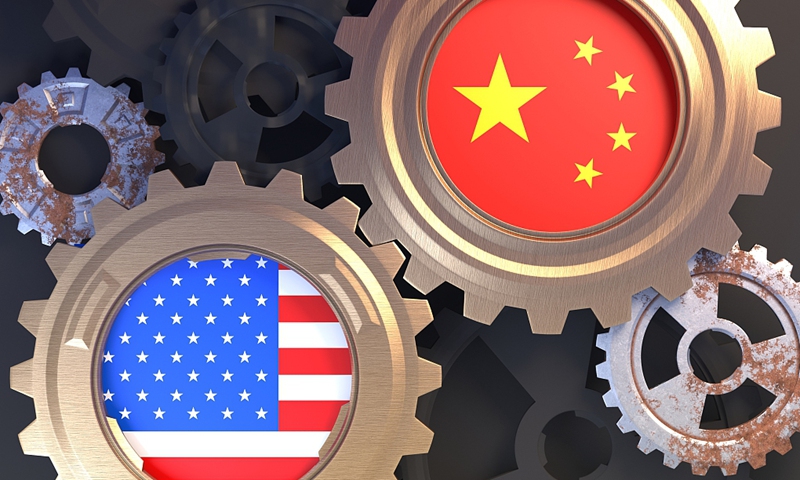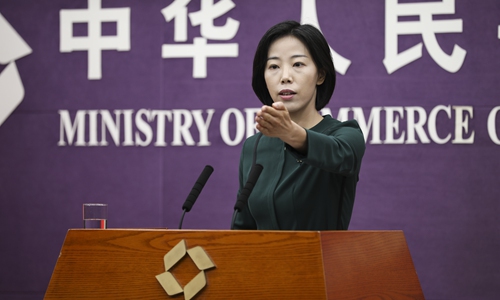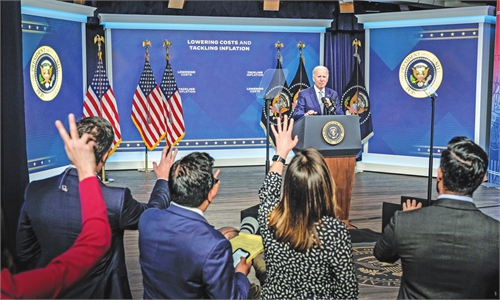US firms remain committed to China market despite political tensions
Global businesses look forward to cancelling tariffs on Chinese goods

China-US
US companies remain committed to Chinese market despite their diplomatic tensions, with 83 percent of the firms surveyed not considering relocating manufacturing or sourcing outside of China, according to an annual white paper released by the American Chamber of Commerce in China (AmCham China) on Tuesday.
The leading US business group in China called for both governments to adhere to globally accepted trading rules, support existing multilateral trade regime, and avoid protectionist practices, as the years-long China-US tariffs war continues to affect the two countries' business communities.
About 58 percent of the US companies surveyed report being directly affected by the China-US relationship, according to the report.
Underscoring the importance of the Chinese market, the white paper said that protecting US business activity and access to the world's second-largest economy will help the companies maintain a strong global position and continue to contribute positively to the US economy.
About 42 percent of the US companies surveyed reported China's growth in domestic consumption and the rise of its growing, affluent middle class as a top business opportunity.
The country's decision to build a unified national market characterized by a market-oriented, international business environment ruled by laws would bring more benefits for US companies, Li Yong, deputy chairman of the Expert Committee of the China Association of International Trade, a think tank affiliated with the Chinese Ministry of Commerce (MOFCOM), told the Global Times on Tuesday.
Despite challenges brought by COVID-19 resurgences and global uncertainties, China's actual use of foreign capital jumped 26.1 percent year-on-year to $74.47 billion in the first four months of 2022, data from the MOFCOM showed. Investment from the US surged 53.2 percent year-on-year.
On Tuesday, US-based multinational Cummins Inc announced plans to extend cooperation with Chongqing Machinery & Electric Co until 2040, during which period the two sides will jointly boost the sustainable development of their joint venture.
"Localization and win-win cooperation with Chinese partners is the code of the company's success in China. The common vision we share with our partners and relevant parties as well as mutual trust will ensure greater opportunities amid fiercer competition," Nathan Stoner, vice president of Cummins, was quoted as saying in a Chinese statement on the company's WeChat account.
Underscoring China's constant efforts to encourage foreign investment, the National Development and Reform Commission said on Tuesday that the country is amending its catalogue of encouraging foreign investment to push for a volume increase and structural improvement. In particular, China encourages inbound foreign investment to flow into key sectors like manufacturing and producer services, and to key areas including the central and western regions and northeast China, it said.
However, AmCham China said that US companies continue to face challenges in the Chinese market due to rising tensions in China-US relations and issues in China's market conditions.
It contained complaints about what it described as longstanding challenges with respect to a level playing field for US companies, including "discriminatory economic policies and insufficient intellectual property protection", claims that have been repeatedly denied by Chinese officials.
Contrary to the chamber's criticism of China's business environment, such a high percentage of US companies showcasing their willingness to continue operations in China underscores persistent improvement of the country's business climate as well as the attractiveness of its huge market potential, said Bai Ming, deputy director of the International Market Research Institute at the Chinese Academy of International Trade and Economic Cooperation.
"Some politicians and businesses in the US are hyping hostility toward China by exaggerating slight concerns so as to pressure US companies to withdraw from China," Bai told the Global Times on Tuesday, noting that it's not only an economic problem.
While US President Joe Biden is under mounting inflation pressure to remove additional tariffs on imported Chinese goods, the US is moving to worsen bilateral relations by threatening to delist dozens of Chinese companies.
"We recognize that the US government is considering the lifting the tariffs in some circumstances on some goods [imported from China]," Lester Ross, chair of the policy committee of AmCham China, told the Global Times on Tuesday.
"China has taken a responsive strategy since the beginning of the China-US trade war. Therefore, I don't see any reason why China sticks to its old tariff plan if the US removes punitive tariffs on Chinese imports," Li said.
Qin Gang, China's Ambassador to the US, recently noted that since former US president Donald Trump launched a trade war against China, the tariffs have cost US corporations more than $1.7 trillion and increased American households' spending by $1,300 each year. During the same period, the tariffs also caused the loss of over 240,000 jobs in the US.
In addition, Ross said that governments on both sides should do as much as possible to achieve the sharing of technology and the division of labor, which will benefit both companies and the countries as a whole, and ultimately the global economy.
"We remain opposed to any effort at outright decoupling of the US-China relationship. The costs of decoupling from losing trade and foreign investment benefits for both countries would be significant and are unlikely to generate clear winners," the report read.



